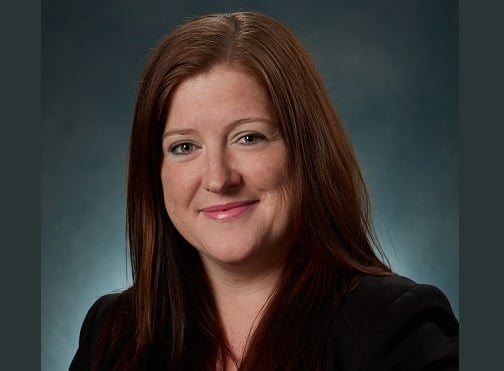As human resources business partner at culture-focused telecommunications provider
Cogeco Connexion, Natalie Greer-McIlwaine uses her HR expertise and supportive nature to ensure a great employee experience for all staff.
Her background includes leading the HR team at Conservation Halton, and 10 years in human resources and customer service management at Tim Hortons.
Greer-McIlwaine is also passionate about giving back to the community through volunteering, and was recently recognized with the Sesquicentennial Citizenship Award for her involvement as a board director and social media executive with Ontario community organizations.
Here, she shares her greatest successes, the toughest part of her job, and why communication is key to breaking down barriers in HR.
If you could give your younger self, or someone entering HR for the first time, one piece of advice – what would it be?
Get involved. Whether it’s with your professional association, volunteering in the community, or simply maintaining strong relationships with past co-workers or classmates – you never know what doors your network can open for you.
Is there anything exciting in the pipeline for your HR department?
Lots! With a refreshed HR team, a president who fully supports the HR function, and people as a main pillar of our latest strategic plan, Cogeco Connexion is ready to switch on amazing employee experiences. Stay tuned…
What’s the biggest professional obstacle you – or your team – have faced and how did you overcome it?
In my experience, one of the biggest barriers to successful practice of human resources is communication. Every company, every department, every person is different and prefers a different communication style. Whenever I join a new team, or begin to work with a new client group, one of the first things I do is try to determine the best way to communicate with them. Taking the time to determine and practice effective communication leads to faster establishment of relationships, increased buy-in to ideas and programs, and (selfishly!) makes my job easier.
What’s your biggest industry worry or concern right now?
My biggest concern is the ongoing increase of mental health issues. These are some of the most complicated, sensitive and unprecedented situations that we deal with as HR professionals and training can only take us so far. Over the past couple of years it has been great to see more awareness and more resources devoted to these issues, but I find it to be one of the most difficult and concerning aspects of my role.
What is the proudest moment or achievement of your HR career so far?
I have many proud moments, but they are not what most people might think. My teams have been featured on the national news and nominated for awards for amazing employee programs. But I have to say, my proudest moments are the quiet ones that no one else knows about. Interactions with employees where we solve problems to improve their work life, their personal life or both. For me, those seemingly little things are the biggest.
How do you predict the industry will change, if at all, over the next five years?
The biggest change I see has already started – the use of big data in the HR function. I believe that all HR professionals should learn all they can about business acumen at their organizations and keep up to date on the status of key performance indicators – not just the ones associated with HR. Being able to proactively apply this knowledge to interactions within the organization, HR reporting and/or the development of new projects will help to establish human resources as a truly credible strategic business partner.
What would you like your HR legacy to be?
My goal with anything I undertake is to leave it a little better than I found it.
Related stories:
Why your critical feedback may be failing
Five steps to a winning workplace

